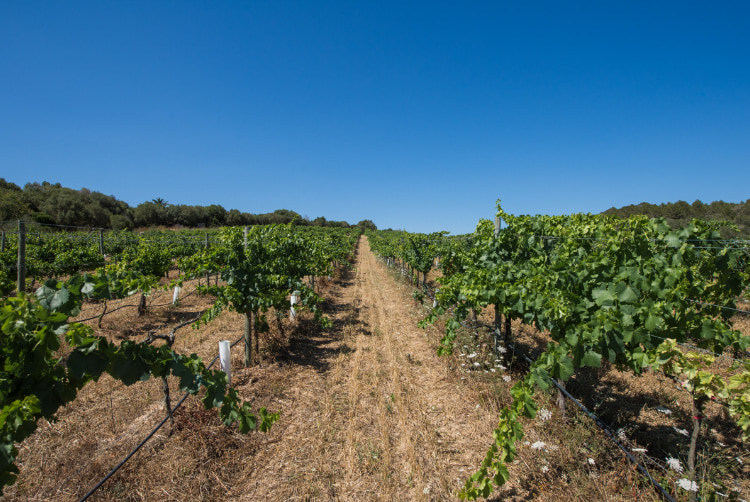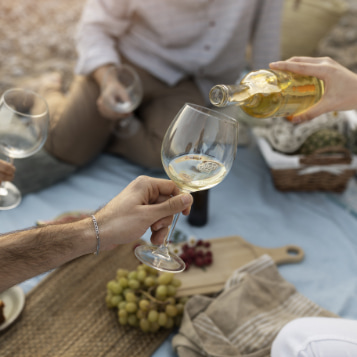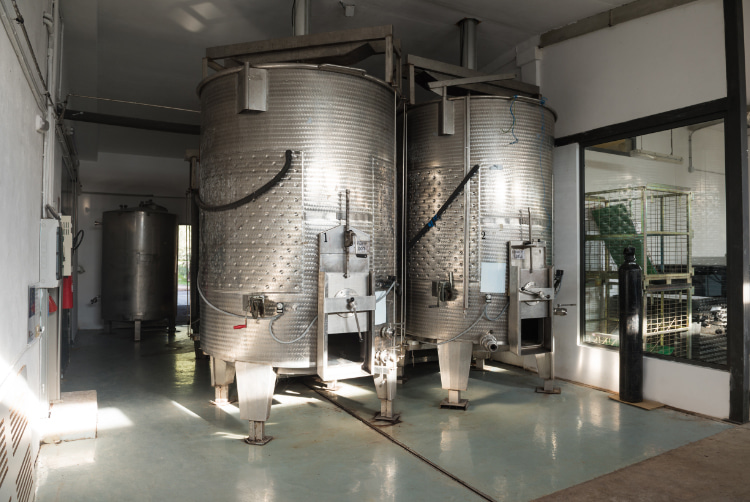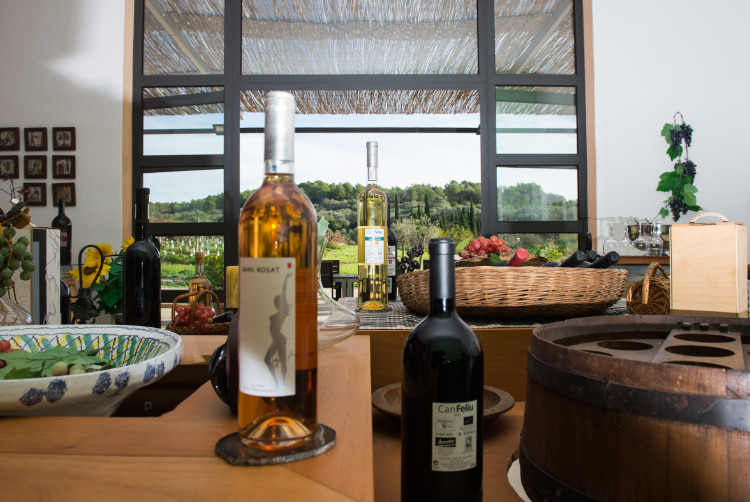Elaboration
- Details
Harvest
Bodega Can Feliu is a cellar devoted to the production, ageing, bottling and marketing of young white and rosé wines and Crianza red wines. It produces all its wines under the Protected Geographical Indication IGP Vi de la Terra de Mallorca.
Since 2004, Bodega Ca’n Feliu is engaged in the production of organic wine from grapes of its vines cultivated in the same estate, and since 2010 it has the International Demeter certification in biodynamic production and vinification.

Bodega Can Feliu was born with a clear commitment to producing great quality wines from local grapes and marketing them both in the national and international market.
The estate of Can Feliu is located in the municipality of Porreres, and it has an 18-ha surface planted with vines, all of which are organic and biodynamic crops.
The first vines were planted in 1999, one century after the end of the winemaking activity, following the phylloxera plague that devastated Europe in the late 19th century. In 2003, a cellar for the production and ageing of wine was projected and the activity started
Likewise, red wine rests for part of its ageing period in the celler of the manor house, which dates back to 1794, in the municipality of Porreres.
Bodega Can Feliu has air-conditioned all its ageing cellars, barrels, bottles and warehouses, by controlled temperature and humidity. Plus, it has the latest winemaking technologies and a great technical and human team.


Bodega Can Feliu manually harvests grapes, collecting them in 15-20 kg boxes that are immediately transferred to the cellar, where they are left for at least 24 hours in order to cool them, thus preventing spontaneous fermentation. Subsequently, grapes are processed and fermented in stainless steel vats.
Bodega Can Feliu has a capacity of almost 70,000 litres in stainless steel vats. All the production vats have cooling systems and they are intended for small productions (per plot, variety, etc.). It has a stock of 120 French and American oak barrels and a bottling and labelling line.

The singularity of this cellar is that it produces wine from organic grapes and with the biodynamic production Demeter certification from the plots of the estate. This enables to reuse the waste resulted from the different stages of wine production and ensure the prevention of several dangers linked to the presence of chemical products such as fertilisers, pesticides, etc. Furthermore, it enables to produce a distinctive product with great added value, with respect to both consumers’ requirements for any type of wine and environmental sustainability criteria, since it preserves and extends the variety of plants cultivated in the area, which farmers have used to improve the land and protect crops, thus also respecting wild animal and vegetal species which coexist around the crops. Besides, the Demeter legislation is the most restrictive in terms of oenological products used and the one that accepts the lowest levels of sulphites present in the wine, which makes our wines some of the healthiest and most natural wines of the market.
Another singularity is that it offers customers the possibility to carry out their own ageing with the chosen grape varieties, barrel-ageing time the type of wood of the barrel, as well as the possibility to custom-bottle and -label it.
The goal is, especially, the internalisation of the company, for which two of the main objectives – that is certifying its quality management and its commitment to the health market (biodynamic) – are clearly essential.

Vinification
Production and vinification protocol for red wine
Grapes for red wine are stored for a day or two in a cold room.
They are racked and berries are selected one by one, discarding the berries that have not reached their optimal ripeness as well as stem pieces.
We transfer the paste to the maceration vat, where must is fermented in contact with skins for about two weeks approximately. At the end of the fermentation process, we remove the liquid of the paste and press the paste.
This is the point in which malolactic fermentation takes place, and it ends approximately in the middle of November, when we age the wine in French oak barrels for a year or more, according to the technical team’s assessment.
After such year, we clarify it with organic egg white and we strain it for 15 days, and then we bottle it. No animal gelatines or isinglass are used in the clarification process. We do use those authorised in organic wines.
After bottling, we leave the wine ageing in the bottle for half to one year and, subsequently, we decide on the labelling and shipping.
Production and vinification protocol for white and rosé wine
Grapes are stored for 24-48 hours in a cold room.
After that, they are taken to the destemmer, where we remove the stems and then we press them. The resulting must is taken to a cold room, where it is left to be racked for one day and a half at about 4ºC of temperature.
Once it has been racked, it is poured into the stainless steel fermentation vats where it undergoes a spontaneous fermentation (without adding industrial yeast) at a controlled temperature.
When fermentation is considered to be concluded, we stir fine lees (cell walls of autolysed yeast) until December.
During the month of December, we clarify white wine with pea protein and bentonite (white clay) and we leave it to rest for about two months or until it is considered totally clean, and after that, we proceed to the tartaric stabilisation.
Tartaric stabilisation is carried out at about 0º C of temperature for a week, and after the stabilisation, we filter it through cellulose plates and we wait until the wine reaches the room temperature of the cellar in order to bottle and label it.
White and rosé wines can be designated vegan wines.
